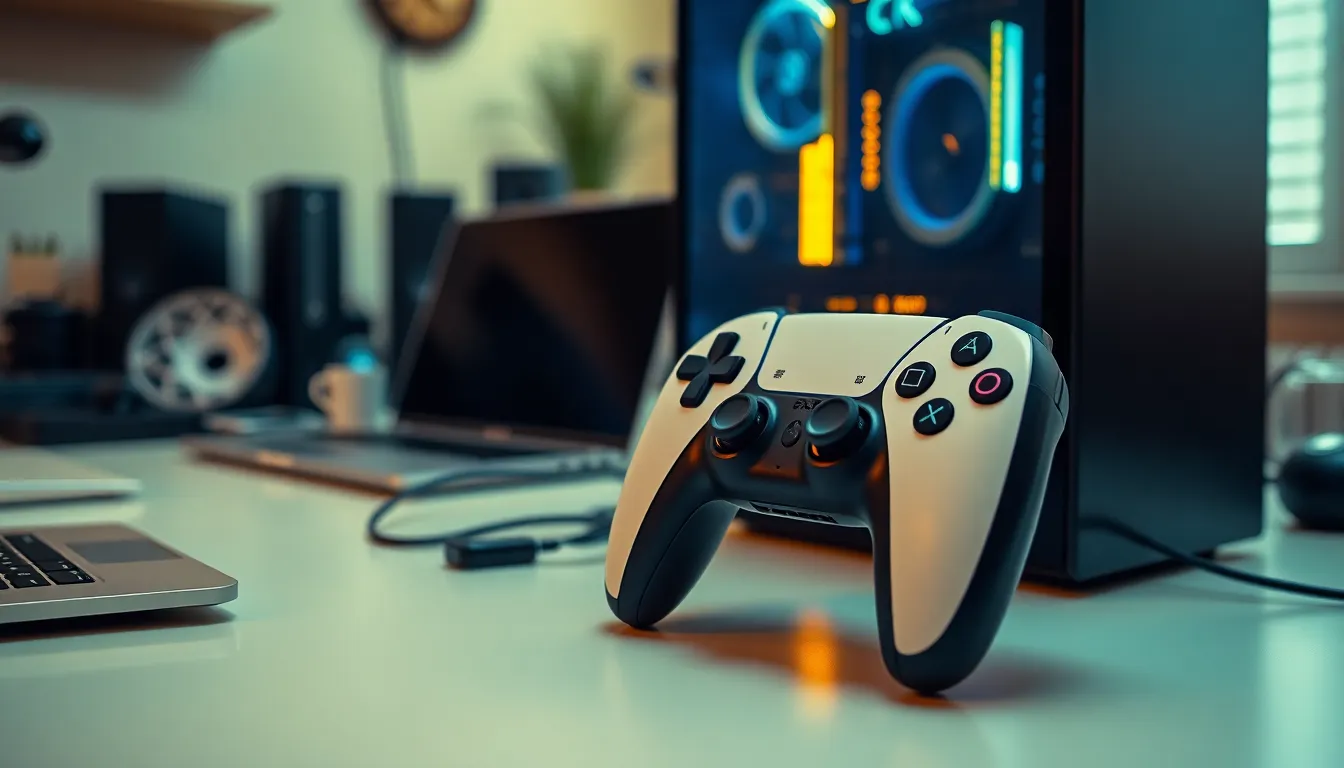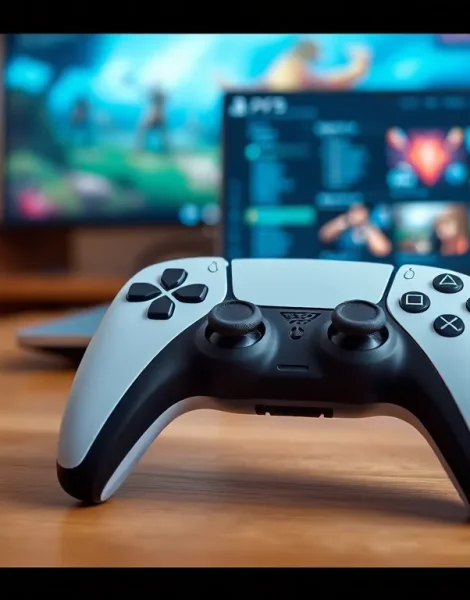The PS5 controller is a sleek piece of tech that’s not just for console warriors. It’s a powerhouse waiting to unleash its potential on your PC gaming setup. Imagine seamlessly gliding through your favorite games with the precision and comfort of a DualSense controller. Sounds tempting, right?
Table of Contents
ToggleUnderstanding PS5 Controller Compatibility
The PS5 DualSense controller connects seamlessly to PCs, enhancing gaming experiences. Users enjoy robust compatibility across various PC gaming platforms, including Steam and Epic Games. Connecting the controller via Bluetooth offers several advantages, such as freedom of movement and a clutter-free environment.
Not all operating systems support the PS5 controller equally. Windows 10 and Windows 11 provide native support for the DualSense controller. Users might require specific updates to ensure full functionality. Additionally, the controller’s touchpad and adaptive triggers deliver unique experiences in select games, further enriching gameplay.
Unlike earlier controllers, the DualSense features advanced haptic feedback technology. It enables players to feel in-game actions, creating a more immersive environment. Games designed to take advantage of these features enhance user engagement and enjoyment.
Firmware updates can affect compatibility, so keeping the controller’s software current is essential. Users can download updates directly from official PlayStation resources or through compatible software. Doing so maximizes performance and ensures proper functionality with various gaming platforms.
Some users report minor issues with wired connections when using the controller on PCs. These obstacles may include lag or erroneous button presses. Using Bluetooth often resolves these concerns, providing a smoother gaming experience. Adapting to Bluetooth use showcases the PS5 controller’s versatility, making it a valuable tool for PC gamers.
Preparing Your PC for Bluetooth Connection

Setting up a Bluetooth connection for the PS5 controller requires a few essential steps. Preparation streamlines the process and ensures a smooth connection.
Checking Bluetooth Capability
First, confirm that the PC has built-in Bluetooth functionality. Many laptops come with this feature. For desktop users, a USB Bluetooth adapter may be necessary. Open the Device Manager to check for Bluetooth settings. If Bluetooth is listed, the PC supports it. If not, installing an adapter will enable Bluetooth connectivity. Refer to the manufacturer’s specifications to verify support for Bluetooth versions that enhance controller performance.
Updating Drivers and Software
Updating drivers ensures optimal compatibility and performance. Begin by visiting the PC manufacturer’s website for the latest Bluetooth drivers. Download and install the updates as needed. Additionally, check for Windows updates in the settings. Keeping software current helps avoid connectivity issues with the PS5 controller. Device Manager also provides options for updating Bluetooth drivers. Right-click the Bluetooth device and select ‘Update driver’ to search automatically for updates.
Connecting PS5 Controller via Bluetooth
Connecting the PS5 DualSense controller to a PC via Bluetooth allows for an enhanced gaming experience. Follow these steps to achieve a seamless pairing.
Activating Pairing Mode on the Controller
To activate pairing mode, press and hold the PS button and the Create button simultaneously. This action causes the controller’s light bar to flash, indicating that it’s ready for pairing. Once flashing, the controller is in discovery mode and can communicate with nearby devices. Doing this ensures that the controller is visible for the next steps.
Pairing the Controller with Your PC
Navigate to your PC’s Bluetooth settings. Open the Start menu and select Settings, followed by Devices, then Bluetooth & other devices. Toggle Bluetooth to the “On” position. Click on “Add Bluetooth or other device,” then choose Bluetooth from the options. When the PS5 controller appears in the list of devices, select it to complete the pairing process. Confirmation on the screen ensures successful connection. After pairing, the controller is ready for use with compatible games on the PC.
Troubleshooting Common Connection Issues
Connection issues can arise when trying to pair a PS5 controller with a PC via Bluetooth. Identifying and resolving these problems is essential for a smooth gaming experience.
Resolving Bluetooth Connectivity Problems
Ensure the PC’s Bluetooth function is active. If the Bluetooth is on and the controller is still not pairing, restart the PC and the controller. Controllers may inadvertently connect with other devices, so switching off nearby Bluetooth devices can help. Updating Bluetooth drivers through Device Manager also resolves many compatibility issues. Checking for any Windows updates ensures the system supports the latest Bluetooth protocols. Removing the controller from Bluetooth settings and attempting to reconnect can often clear up persistent issues.
Controller Not Responding
Sometimes the controller may not respond after successful pairing. First, check the battery level of the controller to confirm it has sufficient charge. Using the USB cable for a wired connection momentarily can also help reset the controller. If the controller remains unresponsive, implementing a factory reset could provide a solution. Press the small reset button located on the back of the controller using a paperclip or similar tool. After resetting, try pairing it with the PC again. Ensuring the controller is compatible with the specific games being played can prevent further challenges.
Connecting a PS5 controller to a PC via Bluetooth opens up a world of enhanced gaming experiences. With its advanced features like haptic feedback and adaptive triggers the DualSense controller provides an immersive feel that can elevate gameplay. Users can enjoy the freedom of wireless connectivity while navigating various gaming platforms seamlessly.
By following the outlined steps and troubleshooting tips users can ensure a smooth connection process. Keeping the controller’s firmware updated and verifying Bluetooth compatibility are key to maintaining optimal performance. Embracing the PS5 controller for PC gaming not only adds versatility but also enriches the overall gaming experience.









